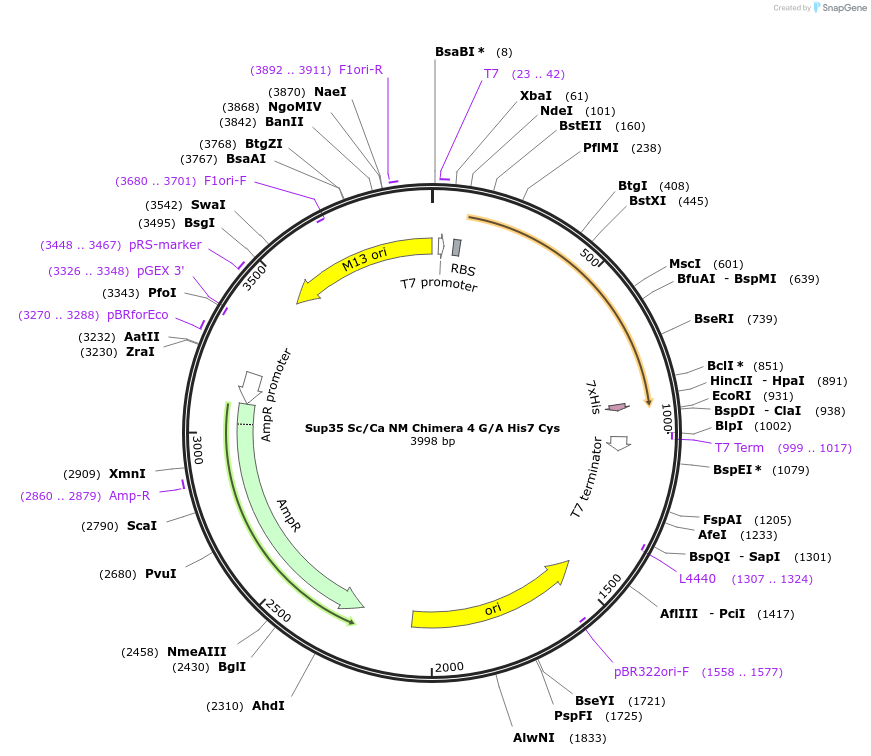Sup35 Sc/Ca NM Chimera 4 G/A His7 Cys
(Plasmid
#15602)
-
Depositing Lab
-
Publication
-
Sequence Information
Ordering
| Item | Catalog # | Description | Quantity | Price (USD) | |
|---|---|---|---|---|---|
| Plasmid | 15602 | Standard format: Plasmid sent in bacteria as agar stab | 1 | $89 | |
Backbone
-
Vector backbonepAED4
- Backbone size w/o insert (bp) 3200
-
Vector typeBacterial Expression
Growth in Bacteria
-
Bacterial Resistance(s)Ampicillin, 100 μg/mL
-
Growth Temperature37°C
-
Growth Strain(s)DH5alpha
-
Copy numberUnknown
Gene/Insert
-
Gene/Insert nameSup35 NM
-
Alt nameSup35
-
SpeciesS. cerevisiae (budding yeast); Candida albicans
-
Insert Size (bp)830
-
Mutation4 G/A. Four glycines mutated to alanines. The position of the residues in the chimera are 64, 65, 74, 75. The position of the residues in CaNM are 70, 71, 80, 81.
-
Entrez GeneSUP35 (a.k.a. YDR172W, GST1, PNM2, SAL3, SUF12, SUP2, SUP36)
-
Tags
/ Fusion Proteins
- 7xHis (C terminal on insert)
- Cysteine (C terminal on insert)
Cloning Information
- Cloning method Restriction Enzyme
- 5′ sequencing primer T7
- (Common Sequencing Primers)
Resource Information
-
A portion of this plasmid was derived from a plasmid made byJonathan Weissman's lab.
Terms and Licenses
-
Academic/Nonprofit Terms
-
Industry Terms
- Not Available to Industry
Trademarks:
- Zeocin® is an InvivoGen trademark.
Depositor Comments
Protein expression inducible by IPTG. Sc/Ca = Saccharomyces cerevisiae / Candida albicans chimera (residues ScNM 1-40, CaNM 49-141, ScNM 124-254), NM = N-terminal and Middle domains of Sup35.
Lindquist plasmid # 8635.
These plasmids were created by your colleagues. Please acknowledge the Principal Investigator, cite the article in which the plasmids were described, and include Addgene in the Materials and Methods of your future publications.
-
For your Materials & Methods section:
Sup35 Sc/Ca NM Chimera 4 G/A His7 Cys was a gift from Susan Lindquist (Addgene plasmid # 15602 ; http://n2t.net/addgene:15602 ; RRID:Addgene_15602) -
For your References section:
Prion recognition elements govern nucleation, strain specificity and species barriers. Tessier PM, Lindquist S. Nature. 2007 May 31. 447(7144):556-61. 10.1038/nature05848 PubMed 17495929



